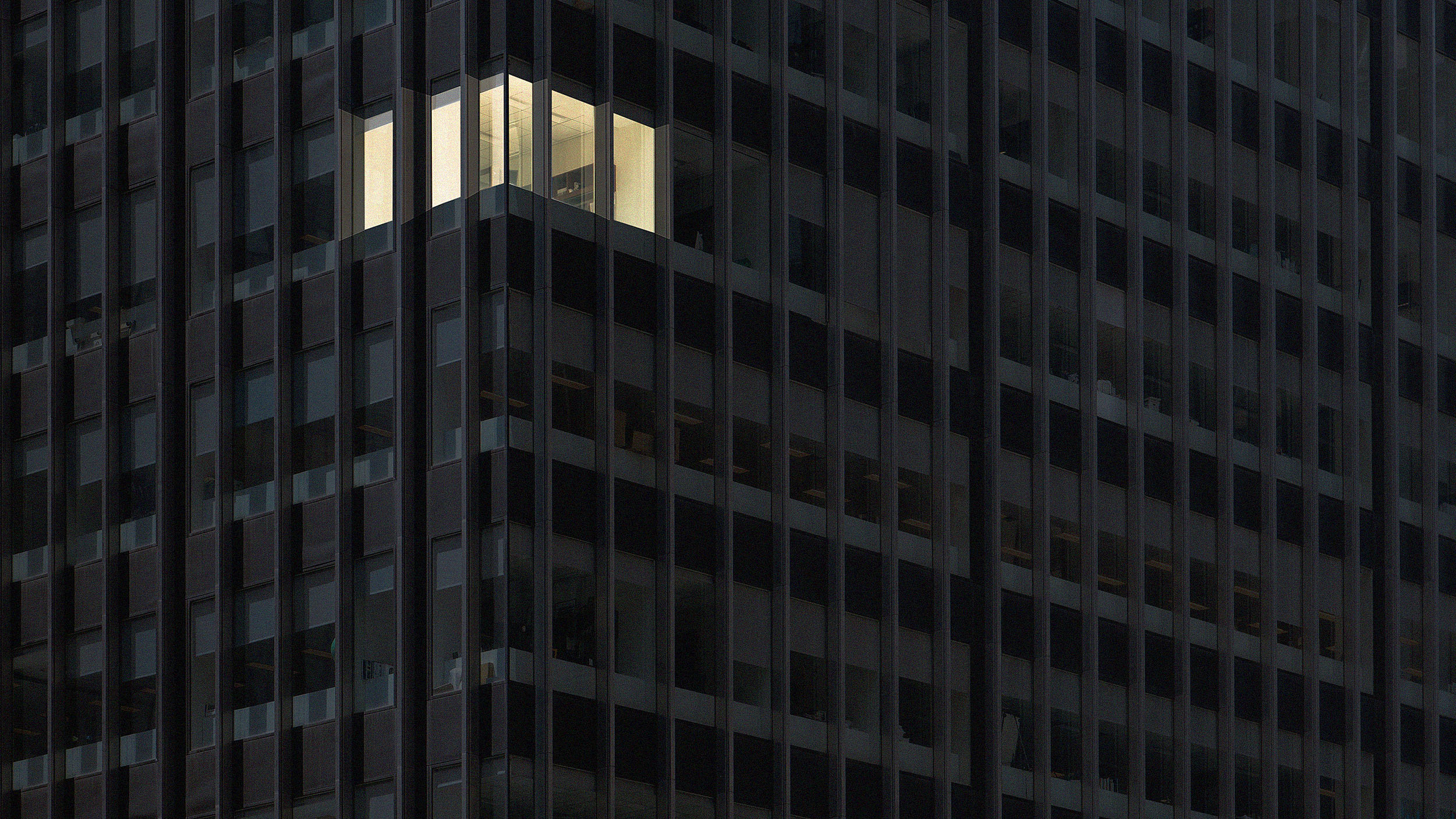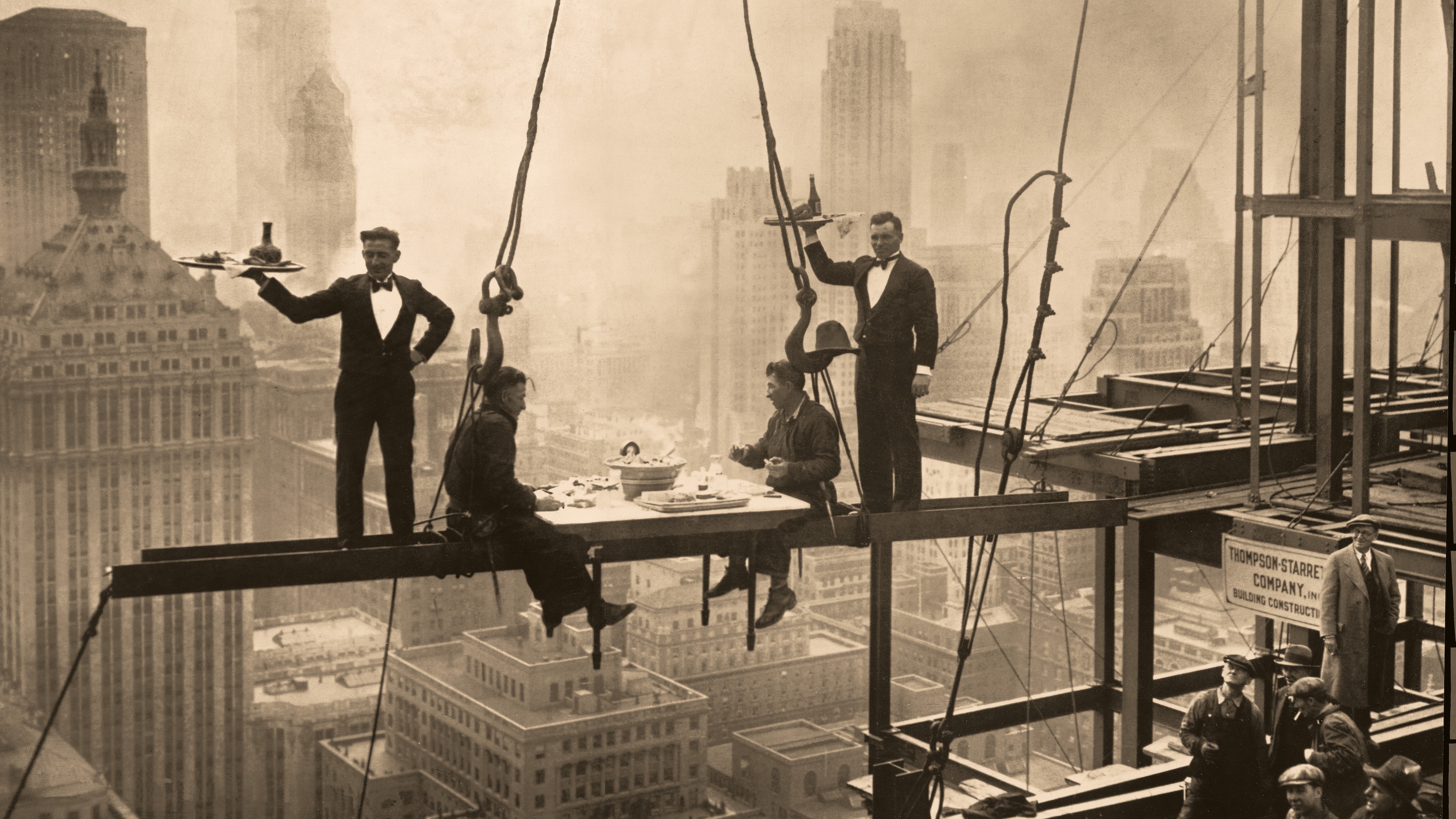Don’t romanticize the gig economy: Freelancers often work more, new study finds.

Photo credit: Smith Collection / Gado / Getty Images
- A new study from Russia’s Higher School of Economics details the many disadvantages of freelancing.
- Problems with the gig economy include longer working hours, working on weekends and holidays, and no employee benefits.
- New legislation in California is attempting to address these issues, but may harm more than it helps.
We always romanticize the other side. To office workers, working from home seems like a dream. And there are advantages to contract work, but you rarely hear about the disadvantages from employers. A new study, published in Public Opinion Monitoring, details many of the challenges of surviving in the “gig economy.”
Two researchers at Russia’s National Research University Higher School of Economics (HSE), Denis Strebkov and Andrey Shevchuk, wanted to better understand the downsides of independent contracting. Beyond the perceived freedom such a career choice entails, they say:
“Freelancers often work at times when others are relaxing: in the evening, at night, on holidays, and on weekends. This disrupts one’s work-life balance and negatively affects one’s health, personal well-being, and social life.”
There are many reasons for working at odd times. I’ve been an independent contractor for dozens of companies since 2004. Living in Los Angeles, I often need to communicate with New York. In my current role in blockchain, my company works with contractors in Russia, Germany, and Poland, and formerly worked with a team in Singapore. Meetings are a sacrifice for everyone involved; timing is rarely convenient for all.
Working from home often means being connected from sunrise to sunset (and beyond). There is no clocking in or out, though there is flexibility within those constraints. In some ways, freelancing is more appealing than being parked in one place for eight to 10 hours a day. One of my last full-time jobs, at the Discovery Channel, required that I sit in a cubicle for over thirty hours a week that I didn’t need to actually be there. It was painful, idly watching the minutes of your life pass by.
The Highs and Lows of Self-Employment
Society changes, our concept of work along with it. Strebkov and Shevchuk discuss the financial challenges of non-employee compensation. Contract workers do not receive health (among other) benefits. No paid time off. Taxes are on the contractor, which can be an accounting nightmare when you work for multiple companies. While job security rarely exists anywhere, it is much harder for companies to let go of full-time staff than contractors.
Then there’s time spent working. Citing data from a 2017 study of 12,400 people, the team notes that a third of freelancers never work more than 35 hours a week — the standard work week in Russia is, like America, 40 hours. Yet half of freelancers work over 45 hours, with 27 percent working in excess of 60 hours.
Forget a Monday-to-Friday schedule. Only 10 percent of freelancers never work in the evening or late into the night, compared to 65 percent of full-time workers; 2 percent of freelancers do not work on weekends of holidays, while that number for full-time staff is 34 percent. Almost two-thirds of contractors work nights and weekends, with only 22 percent of full-time workers claiming such.
This affects the mental health of contractors, say Strebkov and Shevchuk. Balancing family and relationships with work is a constant challenge. Working late into the night affects circadian rhythms, messing with sleep cycles, which negatively impacts mental health as well. The researchers conclude:
“Self-employment proves to be very time-consuming. When opting for autonomy, freelancers fall into the trap of ‘self-exploitation and self-sale’ rather than traditional ‘exploitation.'”
In America, the gig economy has come under scrutiny by politicians. Criticism aimed at Uber, Lyft, and DoorDash has resulted in the California state legislature passing a bill that requires many companies to treat freelancers as employees. The law is meant to counter the leverage corporations hold over contract workers. Sadly, if passed by Gov. Newsom, it might do more harm than good to the state’s large community of contractors.
Inside a coffee shop in Silicon Valley, Palo Alto, California, a man writing code has transformed a cafe table into a standing desk.
Photo by Smith Collection/Gado/Getty Images
For example, session musicians are covered under this potential law, meaning that record labels will have to hire each musician stepping into the studio to play guitar or sing back-up instead of receiving a session fee. As Bill Hochberg writes in Forbes, not only are labels threatening to move to New York and Nashville, it would also impact the quality of music, with more producers choosing to use samples and pre-recorded tracks instead of hiring live artists.
There’s also a wide range of industries getting an exemption, causing you to wonder what type of lobbying was done behind the scenes. Hochberg continues,
“Curiously, many kinds of workers were granted exemptions from the new law, including insurance brokers, doctors, dentists, lawyers, architects, engineers, private investigators, accountants, investment agents, salespeople, real estate agents and commercial fishermen, among others.”
Meanwhile, in New York, a movement to unionize yoga is underway, which could have the same negative impact as the California law. While focused on larger companies, such as YogaWorks and CorePower Yoga, independent studios would suffer (and a number of them be forced to close) if every teacher is treated as an employee. It’s hard to square offering health coverage to someone that’s only working two hours a week.
The problem with sweeping legislation like the above is it rarely considers the larger picture. More intervention on behalf of employees is needed. When it was revealed that DoorDash was using customer tips as wages, those drivers need legislation. While it might not be illegal for Jeff Bezos to cut healthcare benefits for 1,900 part-time Whole Foods employees, it’s unacceptable that the richest man on the planet is cutting these corners. If the government won’t step in, public pressure should ensue.
Sadly, you can’t paint the employment picture with sweeping legislation, as once again, it is those that are purportedly being protected that will be hurt the most. Session musicians rely on random phone calls for studio and live gigs; yoga instructors cobble together a living from traveling to different studios. Take away that and you’re greatly limiting their options.
The freelance life has never been easy. Instead of targeting individual industries (and strangely exempting others), our leaders should be looking into instituting universal healthcare and raising the minimum wage, so at the very least everyone is being offered a fair shot. Whether working in an office or from your couch, having the basics covered would alleviate at least some of the tension all workers face.
—
Stay in touch with Derek on Twitter and Facebook.





